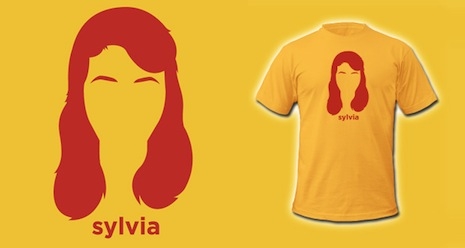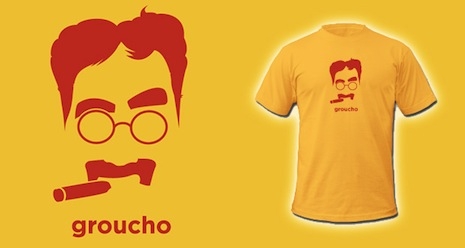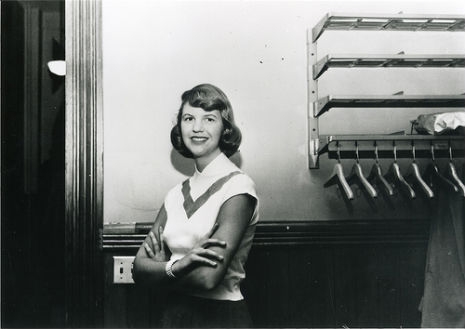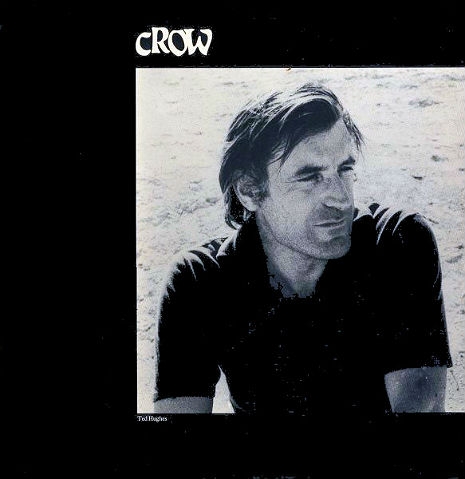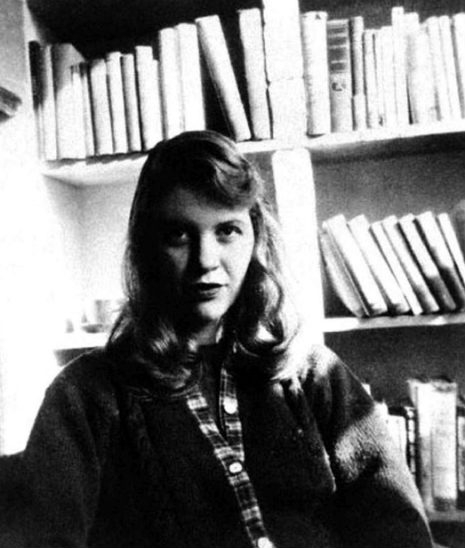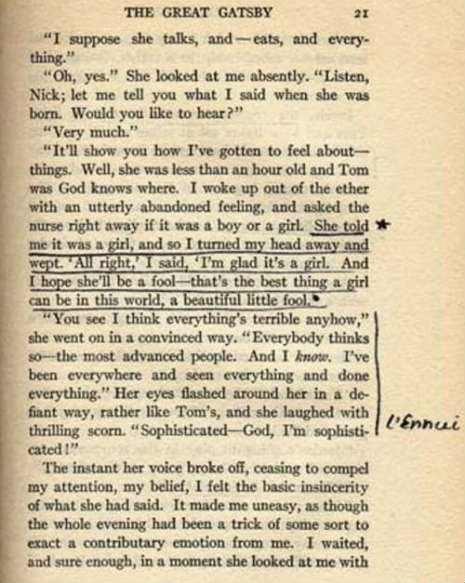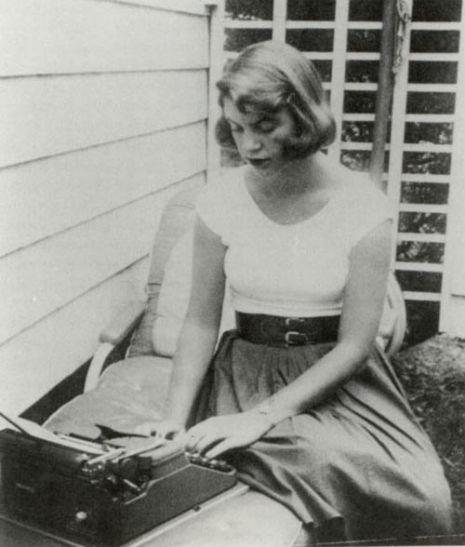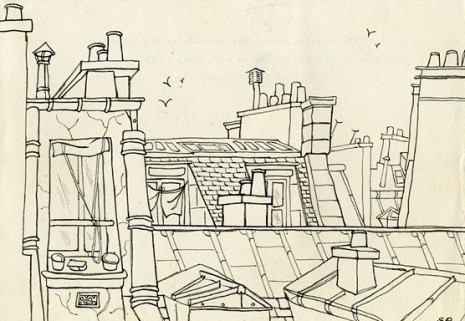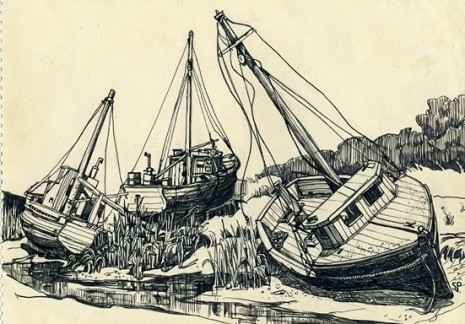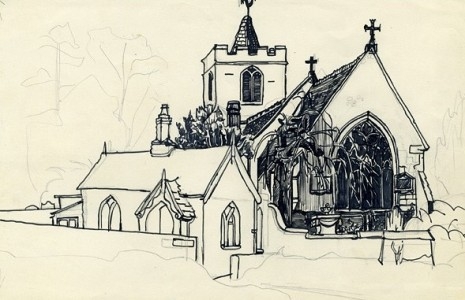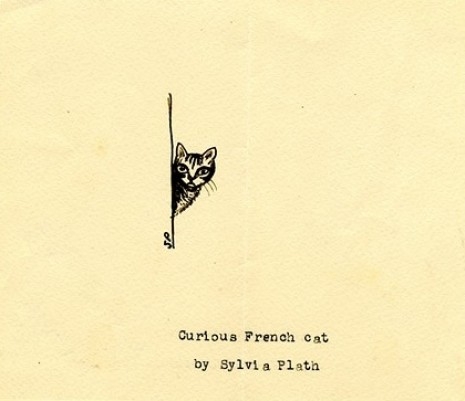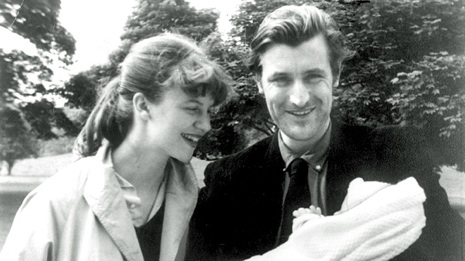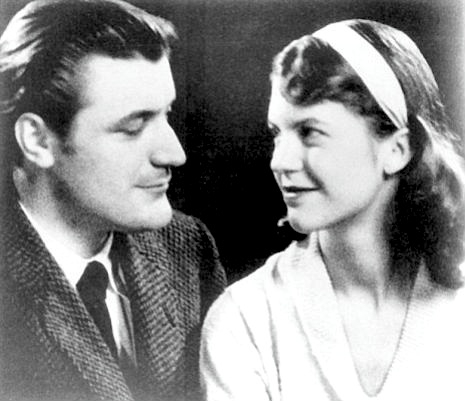
Sylvia Plath and Ted Hughes discuss their work and life together in this interview for the BBC radio program Two of a Kind: Poets in Partnership, from January 18th, 1961. The interviewer is Owen Leeming, who asked about their first meeting at a party in February 1956:
Plath: I happened to be at Cambridge. I was sent there by the [US] government on a government grant. And I’d read some of Ted’s poems in this magazine and I was very impressed and I wanted to meet him. I went to this little celebration and that’s actually where we met… Then we saw a great deal of each other. Ted came back to Cambridge and suddenly we found ourselves getting married a few months later… We kept writing poems to each other. Then it just grew out of that, I guess, a feeling that we both were writing so much and having such a fine time doing it, we decided that this should keep on.
Hughes: The poems haven’t really survived, the marriage, it took a hold. [Laughs]
Plath spotted her “big, dark, hunky boy” across a crowded room, and later danced, drank, and discussed poetry before Hughes kissed her “bang smash on the mouth.” Plath then bit him “long and hard” on the cheek, which he wore as a badge over the following weeks. Four months later, Plath and Hughes married on June 16th, 1956.
Plath published her first volume of poetry Colossus and Other Poems in October 1960, while Hughes had already published two volumes of poetry, including his award-winning debut The Hawk in the Rain in 1957. When asked if their relationship as partners and poets was in “parallel” or “conflict”, Hughes replied:
Hughes: We’re very alike — we like the same things, live at the same tempo, have the same sort of rhythm in almost every way. But obviously this is a very fortunate covering for temperaments that are extremely different. But they lead secret lives, you see — they content themselves in an imaginative world, so they never really come into open conflict.
He later discussed the processes by which they wrote:
Hughes: What she writes out needn’t be at all the contents of her own mind — it needn’t be anything she knows — but it’s something that somebody in the room knows, or somebody that she’s very close to knows. And, in this way, two people who are sympathetic to each other and who are right, who are compatible in this sort of spiritual way, in fact make up one person — they make up one source of power, which you both use and you can draw out material in incredible detail from the single shared mind. … It’s not that you choose the same things to write about, necessarily, and you certainly don’t write about them in the same way — it’s that you draw on an experience, it’s as though you knew more about something than you, from your own life, have ever really learned. . .
It’s a complicated idea to get across, because you’ve first of all to believe in this sort of telepathic union exists between two sympathetic people.
Plath also talked about her childhood, and how her writing developed:
Plath: I think I was happy up to the age of about nine — very carefree — and I believed in magic, which influenced me a great bit. And then, at nine, I was rather disillusioned — I stopped believing in elves and Santa Claus and all these little beneficent powers — and became more realistic and depressed, I think, and then, gradually, became a bit more adjusted about the age of sixteen or seventeen. But I certainly didn’t have a happy adolescence — and, perhaps, that’s partly why I turned specially to writing — I wrote diaries, stories, and so forth. I was quite introverted during those early years.
Between this interview and her tragic, early death in February 1963, Plath was to write her novel The Bell Jar, and the poems that were collected and published posthumously as Ariel in 1965.
Previously on Dangerous Minds
Sylvia Plath’s pen and ink drawings exhibited for the first time
With thanks to Alan Shields, via Brainpickings


